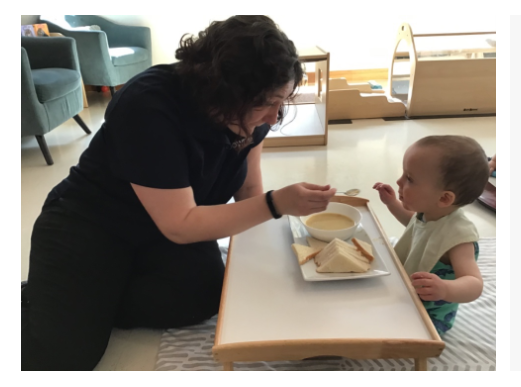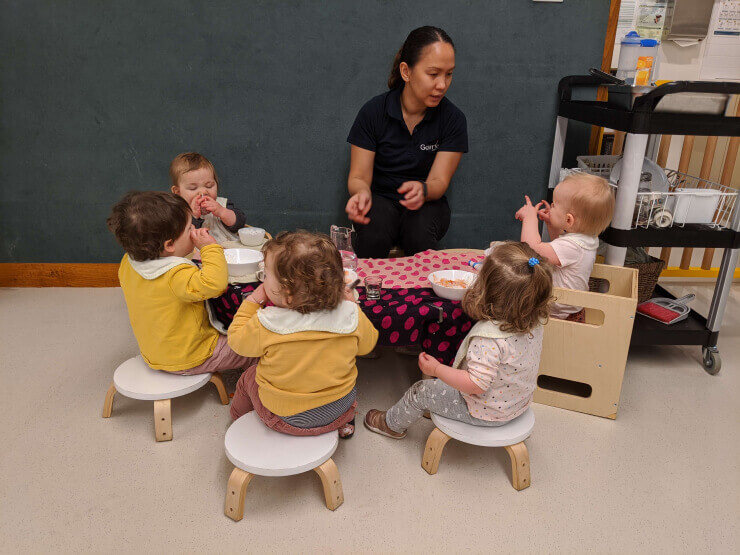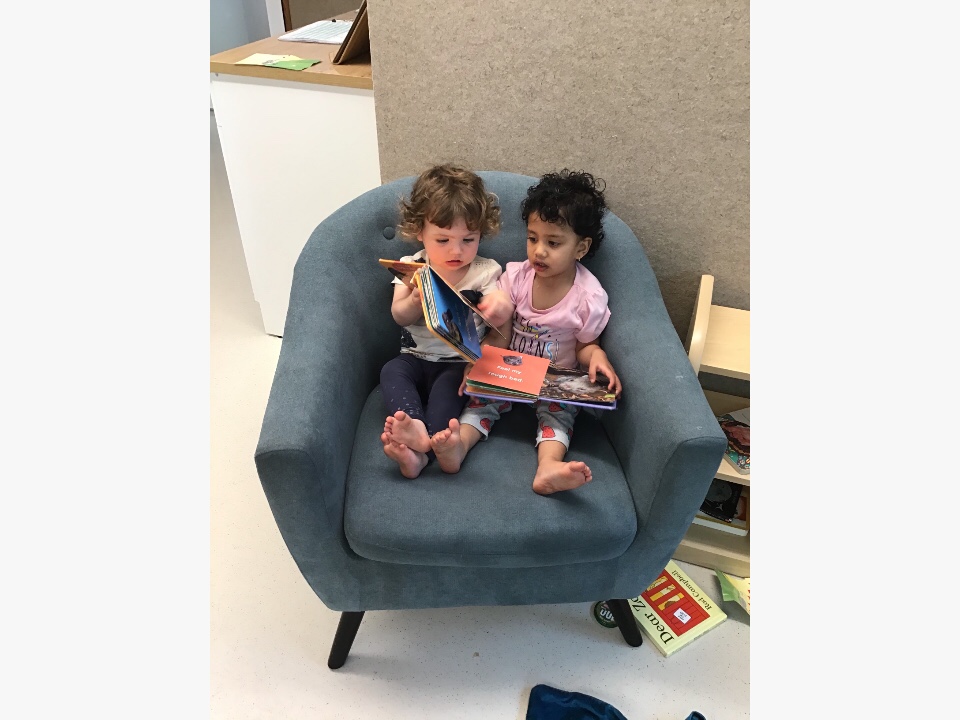Not just showing up, but showing up on time.
By Glacy Burgess, Gowrie Discovery House, Canberra
Have you ever been in a situation where you see children in your care engage in activities or experiences and suddenly, they become cranky and upset? Even after you have responded to the child and given them a bottle - they are still upset? You put the child to bed because they look tired, but they just will not go down for a nap? Sounds familiar? I have experienced this myself and I remember how it made me feel - like an incompetent educator.
I remember on the very first session I had with my mentor Elena Marouchos, Elena asked a question; “Are you showing up to the children in your care, and more importantly are you showing up on time?”
Elena’s question really made me stop and reflect on whether I was responsive enough to the children in my care. Could it be that by the time I gave a bottle to a hungry baby, the baby is starving, and I completely missed the child’s hunger cue? And when I was trying to put a baby to bed because I thought baby needed to sleep, was the child already overtired?
So, what is the benefit of Showing up on time? When we show up on time to the children we care for, it makes them feel seen and valued - it refuels them which in turn makes them feel confident to play and explore. And instead of resisting our simple requests, and pushing their limits, they respond to us with excitement and cooperation because they want to participate in even the most mundane task like nappy change.
I believe that the moment I sat with my feelings and considered an answer to Elena’s challenging question, was when my journey to becoming a respectful and responsive educator began. A shift was made from having a busy room of unhappy infants - who are rushed into their routines, to infants who are content and have a secure and caring relationship with their educators.

So, what did we, as an educative team, do exactly? and what does ‘showing up’ to children look like in practice?
First thing we did was simplify our practice by making caregiving the heart of the curriculum.
Instead of having grand plans about what we should be doing with the children in our care such as “tomorrow I will read the brown bear book at group time”.
We ditched our agendas by getting rid of a teacher-directed experience to really focus our energy on being with a child during caregiving moments. The intimate one-on-one time during nappy change, feeding, and sleep time became the heart of our curriculum. We value these intimate moments to get to know the child, their temperament, and learn to respond to them in a timely matter.
We know that children learn all the time, and the learning opportunities that happen during nappy change, mealtimes and even sleep time are rich - they can learn language, concepts and appropriate behaviour when engaged in caregiving activities.
We established ‘Primary Educator Relationships’ which some services call a ‘Key Educator Approach’. Essentially what this meant was we allocated one educator to a group of just four children, and the primary educator builds a special relationship with each child and take responsibility for their wellbeing within the group. One way an educator can carry out some aspects of primary educator relationship is to verbally acknowledge a child who expresses a need when the educator is busy with another child by saying “I heard you and I’ll be with you as soon as I’m done feeding Lucas.” Once children realise that their needs will be met, children feel secure and begin to understand the purpose of waiting.
The second change we made was ‘we took it slowly’ by slowing down the way we do things, we can connect and pay attention to the child in front of us. When you slow down, such as when you talk slowly to a child and wait a few moments for the child to respond, you are enhancing your awareness of the child’s perspectives which allows the child to tell you what he or she needs.
Instead of getting caregiving duties ‘over with’, slow down and connect with the child. As a team, we do this by paying attention and inviting them to participate. For example, at a nappy change we ask - “Can you lift your legs up?” and this can literally transform this routine into an enjoyable experience for both child and educator.
Lastly, we value uninterrupted play by offering free play opportunities. Sensitive observation allows us not to interrupt, but to trust that the children’s play choices are enough. When children are NOT being changed, fed, or put to bed, they should be engaged in play of their own choosing and more importantly, they should play without interruptions.

When we value uninterrupted play, we foster children’s independence, and we build their focus and attention span. When a child is engaged in play, educators are able to sit back, observe and enjoy the moment with the child. When an educator becomes more aware of the child’s presence, they will be able to anticipate his or her needs therefore you can respond and show up on time.
If we do have to interrupt, we wait for a break in their play, and say “Please let me change your nappy”.
Our journey to becoming responsive educators - who can easily predict children’s needs -was not exactly easy, and it required a lot of work, but it mostly required each educator to work on oneself and our practices of working with infants and toddlers. We needed to be willing to shift our lens to really see the children in front of us, so as to not listen to the clock, but rather to listen to the child.
Elena Marouchos is presenting a series of three workshops: Cornerstones of Magda Gerber's Educaring® Approach, Toddler Motor Development& Physical Environments that Support Uninterrupted Play and Infant.
Location: Gowrie NSW Dubbo
Saturday 12th June 9am - 5.30pm
Register Now








